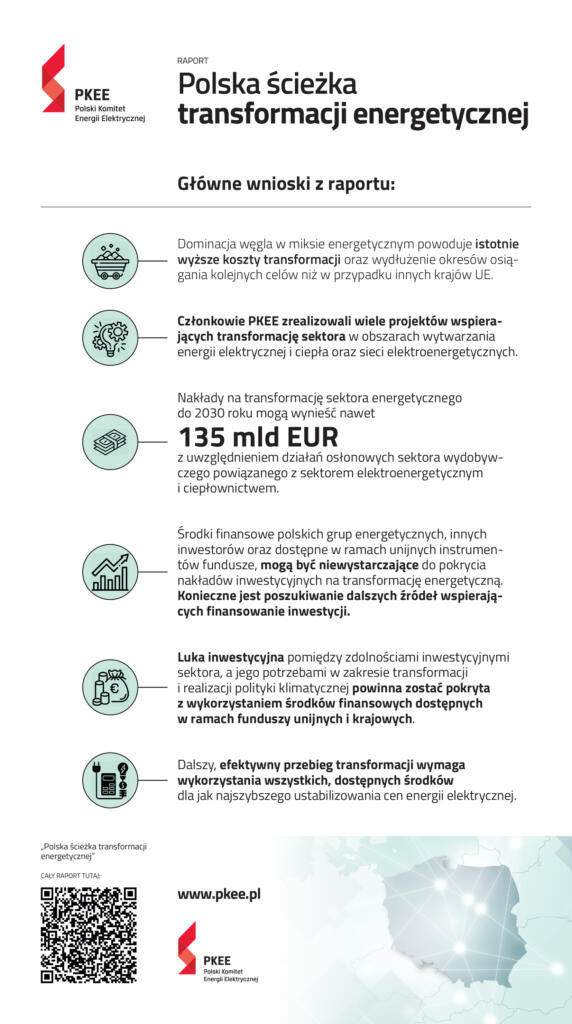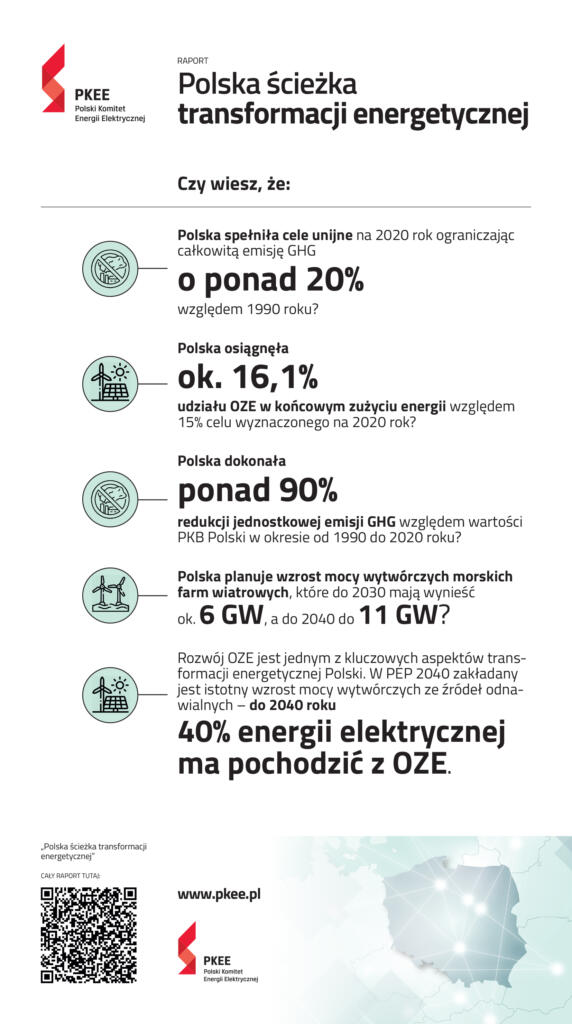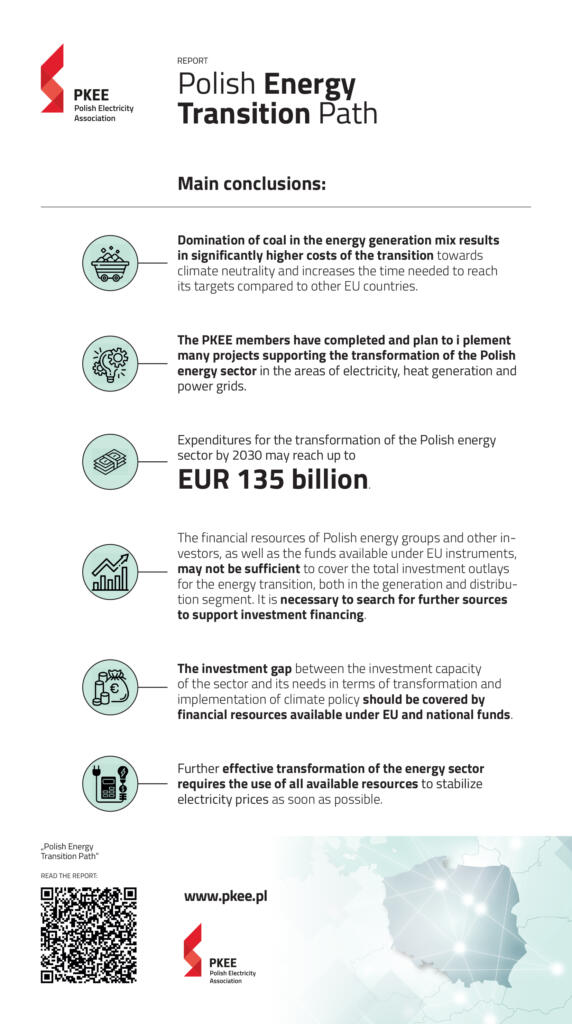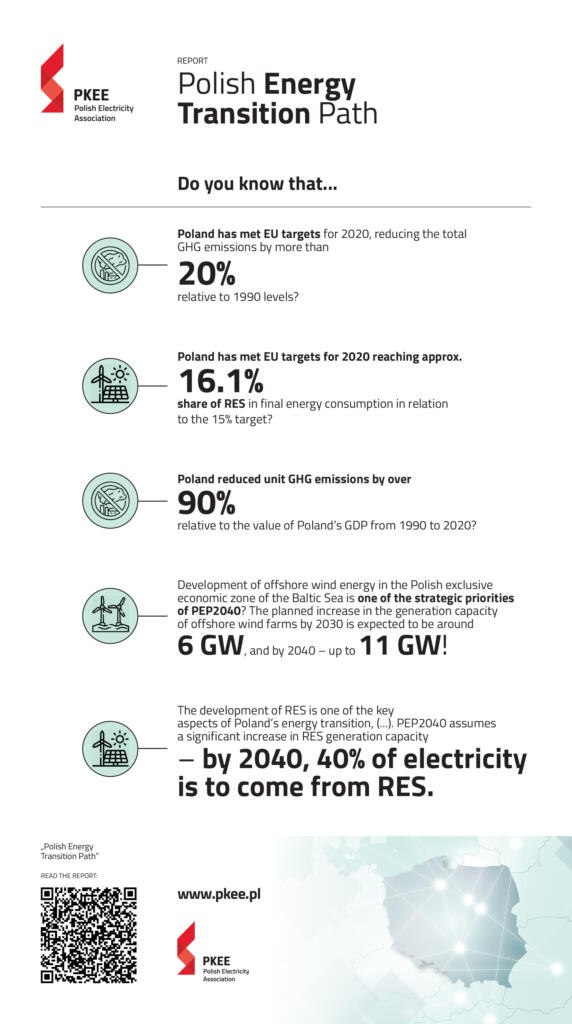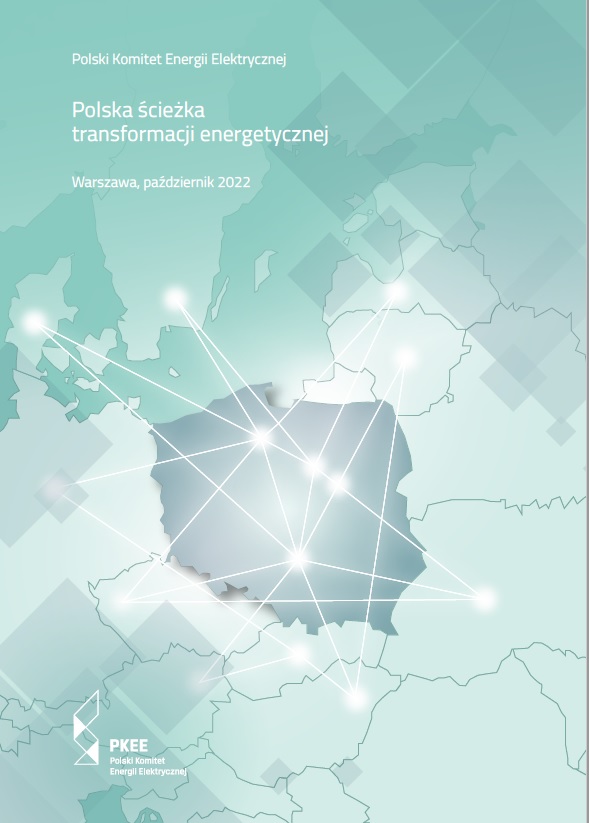The presentation of the achievements of the Polish energy sector and the introduction of the industry's plans for the coming years are the main issues raised in the report Polish Energy Transition PathThe analysis was prepared by EY and Polish Electricity Association (PKEE). The analysis was prepared by EY and Polish Electricity Association (PKEE).
PKEE, whose Supporting Members are the largest Polish companies and industry organisations in the power sector, has prepared a report to present Poland's achievements in the energy transition. Another task of the report is to bring closer the scale of challenges facing the energy sector in Poland resulting from the implementation of both EU and national climate and energy policies, as well as to indicate the impact of market destabilisation on the energy sector transformation process.
"We are currently at a watershed moment for European energy. Many experts say we are facing the biggest energy crisis since the 1970s.
It is up to the joint efforts of the entire energy sector, the Member States and the EU institutions to determine in what condition and when the EU economy will emerge from this crisis. I am convinced that Poland can use the ongoing crisis to build a strong, independent, environmentally friendly and solidarity-based energy sector." - says Wojciech Dąbrowski, Chairman of the PKEE Governing Board.
The scope of the transformation of the Polish energy sector is much broader and more costly than the average in other EU countries. The energy sector in Poland, due to historical and geopolitical circumstances, was dominated by fossil fuels - hard coal and lignite. However, with the gradual and consistent increase in the share of energy produced from low- and zero-emission sources, the environmental impact of energy production in Poland is steadily declining.
"The report prepared by the Polish electricity sector, 'Poland's Energy Transformation Path', allows us to understand where we are today on the path of energy development and recovery from the crisis. The evolution that the Polish power sector has been making consistently since 1989, when we regained our economic sovereignty, is of no small importance." - adds President Dąbrowski.
In addition, the report addresses the most current problems in the energy sector as a result of Russia's invasion of Ukraine and the energy crisis.
The main conclusions of the report are:
- The energy sector in Poland supports the implementation of European climate policy by making an important contribution to meeting EU targets through investment in RES and other technologies that reduce GHG emissions, improving energy efficiency and reducing pollutant emissions.
- GHG emission reductions in the electricity and heat generation sector from 1988 to 2020 amounted to 47%, and 20% over the last 10 years.
- PKEE members have implemented and are planning to implement a number of projects to support the transformation of the sector in the areas of power and heat generation and electricity networks. The report outlines the companies' key projects that are significantly impacting the transformation of the sector.
- Expenditure on transforming the energy sector by 2030 could be as high as €135bn including the shielding activities of the mining sector linked to the electricity and heat sector.
- In the 2030 perspective, the financial resources of Polish energy groups and other investors, as well as the funds available under EU instruments, may not be sufficient to cover the total investment outlays for the energy transformation in both the generation and distribution segments. It is necessary to look for further sources to support investment financing.
- The investment gap between the sector's investment capacity and its needs in terms of transformation and climate policy implementation should be covered using the financial resources available from EU and national funds.
- The continuation of an effective transition requires the use of all available means to stabilise electricity prices as soon as possible. In an environment of economic recession and increasing energy poverty, there is a risk that the energy transition may proceed slowly or even come to a complete halt.
Link to report in Polish and English versions: https://pkee.pl/en/publications/raport-ey-i-pkee-polska-sciezka-transformacji-energetycznej/
